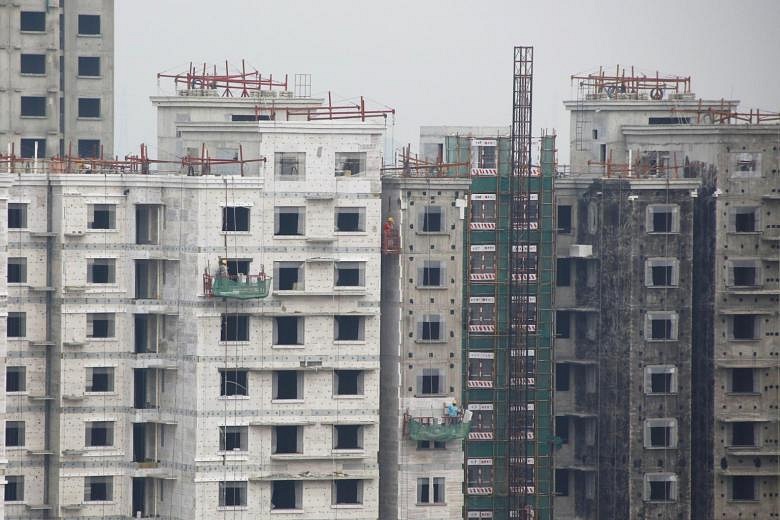HONG KONG (BLOOMBERG) - "Stealth easing" is Nomura Holdings' description of measures rolled out in some Chinese cities in recent months to counter a faltering property market.
In one of the latest cases, Beijing's city government offered two residential land plots for sale without specifying maximum prices for the apartments to be built on them, the South China Morning Post reported on Wednesday (Jan 16).
Nationwide, officials have put so much effort into a campaign against property speculation - one of President Xi Jinping's signature policies - that they may seem unlikely to start unwinding it now. However, a deepening economic slowdown could force just that at the end of the second quarter, according to Nomura economist Lu Ting.
The smallest gain in home prices in eight months in December was reported Wednesday, adding to slowdown signs. Here are some of the recent loosening measures in individual cities.
LOOSENING UP
Bloomberg Intelligence analyst Patrick Wong sees wider easing as possible next quarter, but cautions that officials will be wary of fueling speculation in the biggest cities, where homes are beyond the reach of many. Nomura forecasts "major" easing, especially in tier-one and tier-two cities, including scrapping price controls and purchase and resale restrictions.
HSBC Holdings is focused on a clutch of cities such as Zhuhai, across the border from Macau, which seem especially vulnerable to home-price declines after their household debt blew out. For the nation as a whole, outstanding mortgages grew 823 pe rcent since 2007 to hit 24.9 trillion yuan (S$4.99 trillion) in September, the bank said.
The biggest slide in home prices this year may be a 5 per cent decline in the smaller, tier-3 cities, HSBC analyst Michelle Kwok said in a report this month. National sales may tumble 10 per cent. However, the residential market is "far from entering a severe downturn," she wrote.
Developers can mitigate their risks by investing in cities with strong, migration-driven housing demand and less leverage, Ms Kwok said. The builders with the biggest exposures to cities with "high risk profiles" include industry giant Country Garden Holdings Co.
For its part, JPMorgan Chase & Co. expects "modest cooling" in China's real-estate market this year, while BNP Paribas SA said the government may relax property-tightening measures in second half.
"As cities in China developed, they became more and more reliant on land sales, so in short, a lot of the cities will have to quietly relax the tightening policies in order to stimulate sales this year," Wee Liat Lee, a managing director at BNP said during a briefing in Hong Kong on Wednesday.

